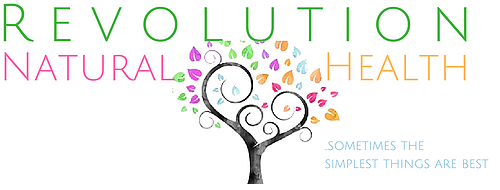
Fad diets come and go. It seems like “health experts” say that you shouldn’t eat something one day, and the next, they’re saying that you should only eat that thing. Then there are the prepacked meal plan diets that are calorie-restrictive but also loaded with processed ingredients. You may lose weight, but your body isn’t necessarily getting everything it needs to function. Dieting is complicated, confusing, and frustrating. Though the newest craze, the keto diet, may be an effective weight-loss tool for some, there is a possibility that it won’t work for your body.
A note on dieting
Before we begin to discuss those who should avoid going on the keto diet, it is important to take a moment to cover diets in general. Dieting, or changing or restricting what you eat in order to lose weight is never healthy. Yes, you heard that right. The goal of eating shouldn’t be to gain or lose weight and if you have that as your focus, you are bound to get discouraged and get caught up with the numbers on the scale rather than what your body is telling you. This can lead to serious issues with self-image, intentional starvation, and binge-eating. Not to mention, dieting isn’t sustainable and you will often gain back any weight you lost once you return to your normal eating habits.
Instead, think of your diet as your lifestyle. Your diet is what you eat on a regular basis to give your body the fuel it needs to function. It is making sure that you eat a well-balanced meal with lots of nutrients from real, plant-based food and avoid processed foods and refined sugar. You should not strive to diet, but rather to live and eat intentionally. Prioritize your health first and don’t get fixated on weight. You will be happier and healthier for it.
That being said, if you’ve lived un unhealthy lifestyle for some time and need to lose weight for your health, or are simply trying to shed a few extra pounds off your waist, there is absolutely nothing wrong with that. And the keto diet may be just what you need to kickstart your metabolism and give you the boost to help maintain a healthy weight.
What is the keto diet?
The keto diet is a high fat, high protein diet that consists of barely 5% carbohydrates. To put that into perspective, the average American eats around 65% of their diet in carbs. This diet includes plenty of meats, eggs, processed meats, sausages, cheeses, fish, nuts, butter, oils, seeds, and fibrous vegetables. After a few days of eating this way, your body goes into a state called ketosis. Essentially, this is when your body begins to burn fat for energy rather than glucose, or sugar. It can be a helpful tool, however, there are still some things you should take into consideration.
Potential long term side-effects of the keto diet:
- Nutrient deficiency
- Liver problems
- Kidney problems
- Constipation
- Fuzzy thinking
- Mood swings
Potential benefits of the keto diet:
- Aid in weight loss
- Reduce seizures in children with epilepsy
- Improve heart health
- Reduce the risk of cancer
- Boost metabolism in women with PCOS
Keto is generally considered safe for obese or overweight people in the short term and may be a good tool to help jump-start your weight loss journey, however, there are a few groups of people who should avoid the keto diet entirely.
Those with type 1 diabetes
If you have type 1 diabetes, avoid the keto diet since it can cause incredibly low blood sugar in those with insulin dependency. Stick to a well-rounded diet with a normal amount of healthy, whole grain carbohydrates and lean proteins.
Pregnant and breastfeeding women
Pregnancy puts an incredible amount of strain on the body, which means that it is certainly not the time to start a new, radical diet. Follow the diet recommendations laid out by your OBGYN and be sure to give your baby the nutrients it needs to develop properly. Remember, a growing fetus needs a steady glucose supply to support normal growth, such as brain development. Failing to provide adequate glucose during this development period could have long term detrimental effects on the health of your child including abnormal growth patterns.
Even after you give birth, if you are breastfeeding, continue to eat a well-balanced diet, as sudden weight loss could stop or slow milk production. Always consult with your doctor before starting any new diet while you are pregnant and breastfeeding.
Children
The keto diet was actually first invented over 100 years ago as a tool for reducing seizures in children with epilepsy and these benefits may still be helpful in extreme cases. If your child has epilepsy, consult with their doctor and see if the keto diet may be right for them.
Children without epilepsy, however, should not be put onto the keto diet. As young bodies and minds are developing, they need a lot of nutrients from a wide variety of foods. While it is healthy to limit things like refined sugar and processed carbs, kids still need to eat plenty of whole grains, fruits, and vegetables.
Other people who should avoid the keto diet:
- People with kidney disease
- Athletes (keto could be useful for endurance athletes)
- People who have had their gallbladder removed
- Those with Multiple Sclerosis (MS)
- Those with thyroid disease
- People at risk of heart disease
Unless you have a particular reason to jump on the keto bandwagon stick to a diet full of unprocessed food such as colorful fruits and vegetables, lean meats, fish, whole grains, nuts, seeds, olive oil, and plenty of water.


